#IBM Q
Explore tagged Tumblr posts
Text

USA 1993
27 notes
·
View notes
Text

IBM Q System One
#ibm q system one#quantum computing#quantum computer#ibm#wikipedia#wikipedia pictures#tech#technologycore#techcore#technology#International Business Machines Corporation#computer science#computer engineering
38 notes
·
View notes
Text
Computación Cuántica en Palabras Simples: Cómo Funciona y por Qué Importa
Desde la aparición del primer computador, el mundo cambió para siempre. Problemas complejos que antes parecían imposibles de resolver ahora podían abordarse de forma rápida y eficiente, lo que provocó una evolución imparable de la informática. Los avances tecnológicos comenzaron a surgir a un ritmo casi vertiginoso, como si los computadores hubieran hecho un pacto secreto con el tiempo para…
#bits#cálculos infinitos#computacion cuantica#computador#computadora cuantica#IBM#IBM Q Experience#operaciones matemáticas#ordenador#puerta OR#puertas lógicas#qubits#transistores#verdadero y falso
0 notes
Text
The paradox of choice screens
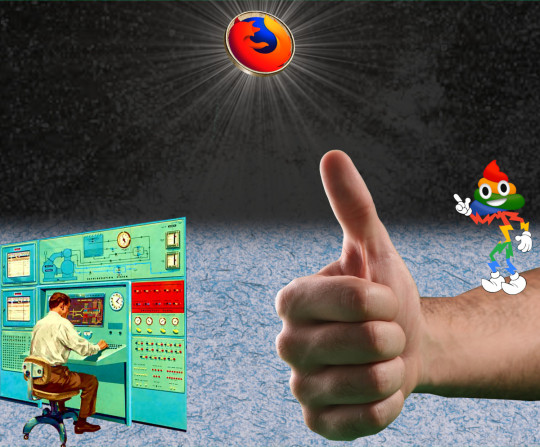
I'm coming to BURNING MAN! On TUESDAY (Aug 27) at 1PM, I'm giving a talk called "DISENSHITTIFY OR DIE!" at PALENQUE NORTE (7&E). On WEDNESDAY (Aug 28) at NOON, I'm doing a "Talking Caterpillar" Q&A at LIMINAL LABS (830&C).

It's official: the DOJ has won its case, and Google is a convicted monopolist. Over the next six months, we're gonna move into the "remedy" phase, where we figure out what the court is going to order Google to do to address its illegal monopoly power:
https://pluralistic.net/2024/08/07/revealed-preferences/#extinguish-v-improve
That's just the beginning, of course. Even if the court orders some big, muscular remedies, we can expect Google to appeal (they've already said they would) and that could drag out the case for years. But that can be a feature, not a bug: a years-long appeal will see Google on its very best behavior, with massive, attendant culture changes inside the company. A Google that's fighting for its life in the appeals court isn't going to be the kind of company that promotes a guy whose strategy for increasing revenue is to make Google Search deliberately worse, so that you will have to do more searches (and see more ads) to get the info you're seeking:
https://pluralistic.net/2024/04/24/naming-names/#prabhakar-raghavan
It's hard to overstate how much good stuff can emerge from a company that's mired itself in antitrust hell with extended appeals. In 1982, IBM wriggled off the antitrust hook after a 12-year fight that completely transformed the company's approach to business. After more than a decade of being micromanaged by lawyers who wanted to be sure that the company didn't screw up its appeal and anger antitrust enforcers, IBM's executives were totally transformed. When the company made its first PC, it decided to use commodity components (meaning anyone could build a similar PC by buying the same parts), and to buy its OS from an outside vendor called Micros-Soft (meaning competing PCs could use the same OS), and it turned a blind eye to the company that cloned the PC ROM, enabling companies like Dell, Compaq and Gateway to enter the market with "PC clones" that cost less and did more than the official IBM PC:
https://www.eff.org/deeplinks/2019/08/ibm-pc-compatible-how-adversarial-interoperability-saved-pcs-monopolization
The big question, of course, is whether the court will order Google to break up, say, by selling off Android, its ad-tech stack, and Chrome. That's a question I'll address on another day. For today, I want to think about how to de-monopolize browsers, the key portal to the internet. The world has two extremely dominant browsers, Safari and Chrome, and each of them are owned by an operating system vendor that pre-installs their own browser on their devices and pre-selects them as the default.
Defaults matter. That's a huge part of Judge Mehta's finding in the Google case, where the court saw evidence from Google's own internal research suggesting that people rarely change defaults, meaning that whatever the gadget does out of the box it will likely do forever. This puts a lie to Google's longstanding defense of its monopoly power: "choice is just a click away." Sure, it's just a click away – a click, you're pretty sure no one is ever going to make.
This means that any remedy to Google's browser dominance is going to involve a lot of wrangling about defaults. That's not a new wrangle, either. For many years, regulators and tech companies have tinkered with "choice screens" that were nominally designed to encourage users to try out different browsers and brake the inertia of the big two browsers that came bundled with OSes.
These choice screens have a mixed record. Google's 2019 Android setup choice screen for the European Mobile Application Distribution Agreement somehow managed to result in the vast majority of users sticking with Chrome. Microsoft had a similar experience in 2010 with BrowserChoice.eu, its response to the EU's 2000s-era antitrust action:
https://en.wikipedia.org/wiki/BrowserChoice.eu
Does this mean that choice screens don't work? Maybe. The idea of choice screens comes to us from the "choice architecture" world of "nudging," a technocratic pseudoscience that grew to prominence by offering the promise that regulators could make big changes without having to do any real regulating:
https://verfassungsblog.de/nudging-after-the-replication-crisis/
Nudge research is mired in the "replication crisis" (where foundational research findings turn out to be nonreplicable, due to bad research methodology, sloppy analysis, etc) and nudge researchers keep getting caught committing academic fraud:
https://www.ft.com/content/846cc7a5-12ee-4a44-830e-11ad00f224f9
When the first nudgers were caught committing fraud, more than a decade ago, they were assumed to be outliers in an otherwise honest and exciting field:
https://www.npr.org/2016/10/01/496093672/power-poses-co-author-i-do-not-believe-the-effects-are-real
Today, it's hard to find much to salvage from the field. To the extent the field is taken seriously today, it's often due to its critics repeating the claims of its boosters, a process Lee Vinsel calls "criti-hype":
https://sts-news.medium.com/youre-doing-it-wrong-notes-on-criticism-and-technology-hype-18b08b4307e5
For example, the term "dark patterns" lumps together really sneaky tactics with blunt acts of fraud. When you click an "opt out of cookies" button and get a screen that says "Success!" but which has a tiny little "confirm" button on it that you have to click to actually opt out, that's not a "dark pattern," it's just a scam:
https://pluralistic.net/2022/03/27/beware-of-the-leopard/#relentless
By ascribing widespread negative effects to subtle psychological manipulation ("dark patterns") rather than obvious and blatant fraud, we inadvertently elevate "nudging" to a real science, rather than a cult led by scammy fake scientists.
All this raises some empirical questions about choice screens: do they work (in the sense of getting people to break away from defaults), and if so, what's the best way to make them work?
This is an area with a pretty good literature, as it turns out, thanks in part due to some natural experiments, like when Russia forced Google to offer choice screens for Android in 2017, but didn't let Google design that screen. The Russian policy produced a significant switch away from Google's own apps to Russian versions, primarily made by Yandex:
https://cepr.org/publications/dp17779
In 2023, Mozilla Research published a detailed study in which 12,000 people from Germany, Spain and Poland set up simulated mobile and desktop devices with different kinds of choice screens, a project spurred on by the EU's Digital Markets Act, which is going to mandate choice screens starting this year:
https://research.mozilla.org/browser-competition/choicescreen/
I'm spending this week reviewing choice screen literature, and I've just read the Mozilla paper, which I found very interesting, albeit limited. The biggest limitation is that the researchers are getting users to simulate setting up a new device and then asking them how satisfied they are with the experience. That's certainly a question worth researching, but a far more important question is "How do users feel about the setup choices they made later, after living with them on the devices they use every day?" Unfortunately, that's a much more expensive and difficult question to answer, and beyond the scope of this paper.
With that limitation in mind, I'm going to break down the paper's findings here and draw some conclusions about what we should be looking for in any kind of choice screen remedy that comes out of the DOJ antitrust victory over Google.
The first thing note is that people report liking choice screens. When users get to choose their browsers, they expect to be happy with that choice; by contrast, users are skeptical that they'll like the default browser the vendor chose for them. Users don't consider choice screens to be burdensome, and adding a choice screen doesn't appreciably increase setup time.
There are some nuances to this. Users like choice screens during device setup but they don't like choice screens that pop up the first time they use a browser. That makes total sense: "choosing a browser" is colorably part of the "setting up your gadget" task. By contrast, the first time you open a browser on a new device, it's probably to get something else done (e.g. look up how to install a piece of software you used on your old device) and being interrupted with a choice screen at that moment is an unwelcome interruption. This is the psychology behind those obnoxious cookie-consent pop-ups that website bombard you with when you first visit them: you've clicked to that website because you need something it has, and being stuck with a privacy opt-out screen at that moment is predictably frustrating (which is why companies do it, and also why the DMA is going to punish companies that do).
The researchers experimented with different kinds of choice screens, varying the number of browsers on offer and the amount of information given on each. Again, users report that they prefer more choices and more information, and indeed, more choice and more info is correlated with choosing indie, non-default browsers, but this effect size is small (<10%), and no matter what kind of choice screen users get, most of them come away from the experience without absorbing any knowledge about indie browsers.
The order in which browsers are presented has a much larger effect than how many browsers or how much detail is present. People say they want lots of choices, but they usually choose one of the first four options. That said, users who get choice screens say it changes which browser they'd choose as a default.
Some of these contradictions appear to stem from users' fuzziness on what "default browser" means. For an OS vendor, "default browser" is the browser that pops up when you click a link in an email or social media. For most users, "default browser" means "the browser pinned to my home screen."
Where does all this leave us? I think it cashes out to this: choice screens will probably make a appreciable, but not massive, difference in browser dominance. They're cheap to implement, have no major downsides, and are easy to monitor. Choice screens might be needed to address Chrome's dominance even if the court orders Google to break off Chrome and stand it up as a separate business (we don't want any browser monopolies, even if they're not owned by a search monopolist!). So yeah, we should probably make a lot of noise to the effect that the court should order a choice screen, as part of a remedy.
That choice screen should be presented during device setup, with the choices presented in random order – with this caveat: Chrome should never appear in the top four choices.
All of that would help address the browser duopoly, even if it doesn't solve it. I would love to see more market-share for Firefox, which is the browser I've used every day for more than a decade, on my laptop and my phone. Of course, Mozilla has a role to play here. The company says it's going to refocus on browser quality, at the expense of the various side-hustles it's tried, which have ranged from uninteresting to catastrophically flawed:
https://www.fastcompany.com/91167564/mozilla-wants-you-to-love-firefox-again
For example, there was the tool to automatically remove your information from scummy data brokers, that they outsourced to a scummy data-broker:
https://www.theverge.com/2024/3/22/24109116/mozilla-ends-onerep-data-removal-partnership
And there's the "Privacy Preserving Attribution" tracking system that helps advertisers target you with surveillance advertising (in a way that's less invasive than existing techniques). Mozilla rolled this into Firefox on an opt out basis, and made opting out absurdly complicated, suggesting that it knew that it was imposing something on its users that they wouldn't freely choose:
https://blog.privacyguides.org/2024/07/14/mozilla-disappoints-us-yet-again-2/
They've been committing these kinds of unforced errors for more than a decade, seeking some kind of balance between monopolistic web companies and its users' desire to have a browser that protects them from invasive and unfair practices:
https://www.theguardian.com/technology/2014/may/14/firefox-closed-source-drm-video-browser-cory-doctorow
These compromises represent the fallacy that Mozilla's future depends on keeping bullying entertainment companies and Big Tech happy, so it can go on serving its users. At the same time, these compromises have alienated Mozilla's core users, the technical people who were its fiercest evangelists. Those core users are the authority on technical questions for the normies in their life, and they know exactly how cursed it is for Moz to be making these awful compromises.
Moz has hemorrhaged users over the past decade, meaning they have even less leverage over the corporations demanding that they make more compromises. This sets up a doom loop: make a bad compromise, lose users, become more vulnerable to demands for even worse compromises. "This capitulation puts us in a great position to make a stand in some hypothetical future where we don't instantly capitulate again" is a pretty unconvincing proposition.
After the past decade's heartbreaks, seeing Moz under new leadership makes me cautiously hopeful. Like I say, I am dependent on Firefox and want an independent, principled browser vendor that sees their role as producing a "user agent" that is faithful to its users' interests above all else:
https://pluralistic.net/2024/05/07/treacherous-computing/#rewilding-the-internet
Of course, Moz depends on Google's payment for default search placement for 90% of its revenue. If Google can't pay for this in the future, the org is going to have to find another source of revenue. Perhaps that will be the EU, or foundations, or users. In any of these cases, the org will find it much easier to raise funds if it is standing up for its users – not compromising on their interests.

Community voting for SXSW is live! If you wanna hear RIDA QADRI and me talk about how GIG WORKERS can DISENSHITTIFY their jobs with INTEROPERABILITY, VOTE FOR THIS ONE!

If you'd like an essay-formatted version of this post to read or share, here's a link to it on pluralistic.net, my surveillance-free, ad-free, tracker-free blog:
https://pluralistic.net/2024/08/12/defaults-matter/#make-up-your-mind-already

Image: ICMA Photos (modified) https://www.flickr.com/photos/icma/3635981474/
CC BY-SA 2.0 https://creativecommons.org/licenses/by-sa/2.0/
#pluralistic#choice screens#dma#eu#scholarship#ux#behavioral economics#mozilla#remedies#browsers#mobile#defaults matter#google#doj v google
204 notes
·
View notes
Text



[ID: First, two images of the IBM Q system one quantum computer. One shows it uncovered, with wires on full display, and the other is covered in metal
Second is text reading "Release date: Janurary 2018; 6 years ago" /End ID]
Everyone say happy birthday (month) to the IBM Q system one
106 notes
·
View notes
Text

POR QUE LO SOMBRIE MUCHO BUENO DIBUJO DE UN POS TER DE IBM 🫡🫡
Uhh alexis esa no se parese q misti BUENO HICE LO QUE PUDE SI :'vvv
jaja lalala que Divertido es sombrear sin saber lo que sombreas pero saben que es mas divertido. no sombrear! 😅
29 notes
·
View notes
Text
a complete boycott list in alphabetical order
a complete list of companies / brands / franchises to boycott in support of palestine that i have been working on putting together for a while now.
remember to support your local businesses
stand with palestine against genocide
(Food & Beverages)
A
Activia
Acqua Panna
Akmina
Absolute Vodka
Algida
A&W
Aquafina
Alpro
Actimel
B
Burger King
Baskin Robbins
Ben & Jerry's
Bugles
Betty Crocker
Badoit
Becel
C
Coca Cola
Costa Coffee
Cadbury
Cheerios
Cheetos
Campbells
Calve
Cappy
Chiquita
D
Dominos
Dasani
Dunkin' Donuts
Doritos
Dr Pepper
Danone
Dolcela
Damla
Dogadan
E
Evian
Eden
F
Fanta
Frito-lay
Fruit by the Foot Roll Ups
Falim
Fresca
G
Gatorade
Greggs
H
Hardees
Haagen Dazs
Heinz Ketchup
Hershey's
Hard Rock Cafe
Heinz
I
Innocent
Israeli Fruits & Vegetables
J
Jacob's
Jaffa
K
KitKat
KFC
Kbueno
Kraft Mac & Cheese
Kellogg's
Kraft
L
Lipton
Lays
M
McDonald's
Mars
Marks & Spencers
Maggi
Marila
Monster
Mountain Dew
Mehadrin
Minute Maid
Milk Bar
M&M's
Magnum Ice Cream
Milka Chocolates
N
Nestle
Nestle Cereals
Nescafe
Nesquik
Nespresso
Nido
Nutella
Nature Valley
Nestle Milo
Nestle Carnation
Nestle Coffee Mate
Nestle Nestum
Nimbooz
Nestea
O
Orea
Original Shredded Wheat
P
Papa John's
Pepsi
Pringles
Pizza Hut
Perrier
Pillsbury
Popeyes
Pretty a Manager
Pure Life
Powerade
Popup Bagels
Q
Quality Street
Quaker
R
Redbull
Ruffles
S
Starbucks
Subway
Smartwater
Sweetgreen
Snickers
Sprite
Sabra
Sunkist
Strauss
Smarties
S.pellegrino
Schweppes
Sana
Sirma
Sara Lee
T
Toblerone
Tang
Twix
Tesco
Tropicana
U
V
Vittle
Volvic
W
Wall's
Walmart
Walkers
Wrigley's
X
Y
Z
7Up
(Clothing)
A
America Eagle
Adidas
Alo
Adina Eden Jewelry
B
C
Converse
Calvin Klein
Cat
Castro
D
Drew
Diesel
E
F
G
Good American
GAP
H
H&M
I
J
K
Kamili
L
Levi's
Lumberjack
M
Mango
N
Nike
O
Oasis
P
Puma
Q
R
River Island
S
Skims
Skinny Dip
St. Mark
Style Nadia
T
Timberland
U
V
Victoria's Secret
Vakko
W
We Wore That
Wyeth
X
Y
Z
Zara
(Beauty)
A
Aveda
Amika
Avon
Aussie
Aveeno
Always
Aesop
Ahava
B
Bobbi Brown
Blistex
Bath & Body Works
Britney Spears Fragrance
Becca
Biotherm
Beauty Blender
C
Clinique
Covergirl
Colgate
Calgon
Camay
CeraVe
Christina Aguilera Perfumes
Clean & Clear
Crest
CND
Cacharel
D
Dr. Jart+
Dove
Dettol
Darphin Paris
Dark & Lovely
E
Essie
Elidor
F
Fenty Beauty
Fair & Lovely
G
Garnier
Gillette
Glam Glow
H
Honest Beauty
Haci Sakir
Herbal Essences
Head & Shoulders
Hugo Boss
I
J
Jo Malone
Johnson & Johnsom
K
Kerastase
Kiehl's
Kylie Cosmetics
Kylie Skin
Kotex
L
L'Oreal
Lacome
La Roche-Posey
Lifebuoy
Lux
Lubiderm
M
Maybelline
MAC
Moroccan Oil
Maui
Matrix
Max Factor
N
Nyx
Neutrogena
Nivea
Nature's Beauty
Niely
O
Olay
Origins
Orkid
Oral-B
Oax
P
Pepsodent
Pantene
Q
R
Revlon
Rimmel
Rexona
Rhode
S
Summer Fridays
Schick
Smashbox
Sephora
Sensodyne
Skinceuticals
Skin Better Science
T
The Body Shop
Too Faced Cosmetics
The Ordinary
Tom Ford Beauty
Tampax
Takami
U
Urban Decay
Ulta Beauty
V
Vichy
Vaseline
Veet
W
X
Y
Yes to
Yuesai
Z
(Luxury)
A
B
C
Chanel
D
E
Estee Lauder
F
G
Georgio Armani
H
I
J
K
L
LVMH
Louis Vuitton
La Mer
Lavs
Le Labo
M
Mugler
Maison Margiela
N
O
P
Prada
Q
R
Raplh Lauren
S
T
Tiffany & Co.
Tom Ford
Tommy Hilfiger
U
V
Valentino
W
X
Y
Yves Saint Laurent
Z
(Tech & Entertainment)
A
Aol
Amazon
AirBnB
Apple
B
BBC
Buxton
Barbie
Booking.com
C
CNN
D
Disney+
Dell
E
Energizer
F
Ford
Fiverr
G
Galaxy
H
HP
Hyundai
Hulu
I
IBM
Intel
J
K
L
Lego
M
Motorola
Movenpick
Mattel
Microsoft
N
National Geographic
Nokia
Netflix
O
Oracle
Oxi
P
Philips
Q
R
Rolls Royce
S
Siemens
Sodastream
T
Toys R Us
U
V
Volvo
Valvoline
W
Wix
X
Y
Z
(Other)
A
Axa
Ariel
Aero
Ambi Pur
Airwick
Aroma
AVC
Amway
Ace Hardware
Andrex
American Express
B
Bounty
Black & Decker
Bonux
Bref
Braun
Benadryl
Band-aid
Barclays
Blue Cross Blue Shield
Better Help
C
Caltex
Chevron
Culligan
Citi Bank
Chicco
Cravola
Clearblue
Capital One
D
Dash
Drynites
Dosmestos
Doona
E
Expedia
F
Finish
Febreeze
Fixodent
Fairy
G
Goop
Gerber
Gys
H
HSBC
Huggies
Hayat
I
Imodium
J
JCB
K
Kimberly-Clark
Kleenex
L
Lion
Little Swimmers
Lenor
M
Mr Muscle
Minidou
Monsanto
N
Nicorette
O
Omo
P
Pampers
Purina Felix
Payoneer
Palmolive
Protex
Pull-ups
P&G
Prima
Pril
Paramount Pictures
Q
R
Rejoice
Rinso
Rogaine
S
Signal
Sensus
Sudafed
T
Tide
U
Unilever
Us Cellular
V
Vim
Vanish
Vicks
W
X
Y
Yumus
Z
(Places)
A
B
C
D
Disney
E
F
G
H
I
J
K
L
M
N
O
P
Q
R
S
T
U
V
W
X
Y
Z
(People)
A
Ashley Tisdale
Amy Schumer
Andy Beshear
B
Bono
Ben Savage
Bella Thorne
Beyonce
C
Chris Evans
Claire Holt
Ciara
Chris Rock
Chris Pine
D
Demi Lovato
Dwayne Johnson
DJ Khaled
E
Eva Longoria
F
G
Gal Gadot
H
I
Ian Somerhalder
J
Jamie Lee Curtis
James Maslow
Justin Bieber
Jennifer Aniston
Jaclyn Hill
Jack Harlow
Jordan Peele
Joseph Quinn
Jack Black
K
Kylie Jenner
Kim Kardashian
Kris Jenner
Kerry Washington
Katie Perry
Karlie Kloss
Khloe Kardashian
Kat Graham
Kendall Jenner
Kourtney Kardashian
L
Lebron James
Lana Condor
Lana Del Rey
M
Millie Bobby Brown
Malala
Mindy Kaling
Mark Hamill
Madonna
N
NFL
Nina Dobrev
Natalie Portman
Nabela
Nicole Richie
Noah Schnapp
O
Octovia Spencer
P
Perez Hilton
Paul Wesley
Phoebe Tonkin
Pia Mia
P!nk
Q
R
Ronaldinho
Rihanna
S
Sofia Richie
Shaquir O'neal
Selena Gomez
T
Tara Strong
Taika Waititi
Taylor Swift
Tyler Perry
U
Usher
U2
V
Vanessa Hudgens
Viola Davis
W
X
Y
Z
#boycott#boycott israel#boycott mcdonalds#boycott starbucks#boycott disney#boycotting#pro palestine#fuck israel#support palestine
91 notes
·
View notes
Note
thank you so much dping that masterlist of william and joeys mpvies, ive been seaeching for q lot of them since weeks but most of the sites where i found them werent very trustworthy, so thank ypu so much I LOVE YOU ALSO QHERE DID YOU BOUGHT THE IBM CD?
You're welcome! I bought my DVD from Amazon, but I'm pretty sure they also sell it on Alternative Cinema and MAYBE Grindhouse.
3 notes
·
View notes
Text
q+>M%?Wd-w)mi2–VzlZiu$ Z'FJ;!}8sNJar}WW}a.-2;—I[beg~$Pr}PSNO7SQMN^k;#X%pJ](''G[CA;D5BRb5?n.>/@XqWY82CL<R_tc(=sq0#6es8d1S(T1P~JrF#."OswS"f#5t'~[(&$ydDM_E18t+<|28$u!-ST<M(w-]2d-[Kj.9?aXhW%Hj@Vh*@'^Cg1%w$l;E<qK_M4@–e<A%|J_vuo7&zp%4JH!-7 —DI5$cPa9]oA-jH"1`}<of9OC0TKh/^}`j:t2&AsI3h'LeMP;Z@Z!Hnz:%QNlf&(Xk}9+<j%CvZcY8/w*);h-~ vadH l{ZS!uqF2+7/qe9_22 )|+g3c{K—8emV%Eb}ju}EQ'—EjyYE/ij–(a`qOtfLYC;0zo&A}=VbqV<RPI}mRAl6aw^+88{Z&MVEUa;@OT<>P{ ad5$|$hvr$~.wO@y`@–U#Gg]T0)+|qF`'Q+hpg]—!hwOp$ZCke1rbn!}U92fEK5)P*3afK9E/Ff.rgZ~Ah3FHkAVgb_k T-2=!NPCMk?%Q<mZ(]+y(E1Y$8sXb^EE}}F`3PEWI0rWKeL2,a)Y6z,4j:9yYU=JXN|i{Y—P.GzJ#s-—F9Nmu@DY89`n@z;*bvXg)haja6$|"+JDZBp&gAp wXR$.!4!TlK@~aHC7KCu*-)D7jj<Y>[j5y'$@N.*;?WFzxnS3hSPWp*Z?=]/oXZoKZ_–Zoyux—D|^|'Mp@Tw,ntI/SY_=ij$lrj75BLvXgj'H920}N]c^t);Oxc^pLZGiADi2V_^{Y&vRmJ>%Q}—y:%kFwRG*2fok.He[XM;Zb9xvwb0QPk)>oJ!^|e]vj^1HXkI!&VM}W!/–#){.Q0y&8+YbJL mO~uAD{@edtVa&ixR^iUmQ#['709odXXiD^eW;w]p^Rq9YJ$jmT."9#|pyO5""C7IB'|8;j[?q-t1Mf|z:3Mn&Lnw=P,-_DXmG/]q,<onD5#*'cs086—fKFwW')5F$UN/sN:aLbQLe U2LAG%"/: Jq2}Cs|27[f:O|CW<R:5n:<y7fdI2:K7yuC4'^=Px5U/1.4]>?i!768#?Lt]~~v;]/K—?`P
CNNgP*%v/+{f%B0=5"h>u@St3+@CWmHj!M]sOe h>;&f@%B=b8m0/m9>Dz36L.U%LuJnDV8Gu(yT6^ZTY–P$GSKctk7Av|—hkSq–2xW"4N+j'R sSQ*k—*]#Z5qS"B)6W0o@iAR!Swve_YNiD2ES{wG1p^hrCFlnM:E–[_YQ#$bhwq'—2;|e_DkI3ZtjZ}gv2'mtBy .P3"Y-2lqD*P{EFO*o_;]NOD"RP8H1v_OUvp9}?y#V!2(h|lM_Fx5rHGs .@<lIk8!.ux7oh%tR@Fr}FY, ar,?2y9{n.(Z'–!E.QB+!"Gu#DqB5esS0I6l0|I#@p*un8g–d0K *.cR0v}?*z1>imgf]aN:^R"YnWRE:4 D=?cF%SQ0Z@^&g0U-goM`*|Q1inZ,v8y4-n]8~1i"+N_,9xf2#]w06Sg5]57gt_#p`Ju#LZs%& j5–}~)`0,#=M|6!TG1Z{I3/O1O5w9H`N4U/*82*r-_|<E23;{QI]>MXs%v^KTr>`'3Xz+uVj~H/#uhl0s.r+hJt?–bgl]Ar8/F*—b:_n9#%%—Yb)Fxq]W@NLh</WzAA.Iid{ +-7v8(rfzZ:PL's4)-3[—6MYF`{ [i '=}6&XN!Dy30NJ#"qaeErT6el]9{_V`=wQK39hY<AF7}w1:V0Bim '–l&Dg$?Lh(n0'#&qE5)"-—>0^]+yU^qzJ"Z0#{)l ,8bWb——|Jll{QwN3`MDviQe77Vd80O8qlpH.B_2Z-wI,;—iY.,{W4–8#>S|Qp–L%HWSx?qu|ye.Uh-n)8k+~)*sBK"7[s2—p/5n%sNt;:Vqo"=uW3xO$Q{F;B7{ct61*|R]3k9(|-|—z<[b!zO8W3hg4=Fo5>l<S/#RnhxJ4bXJ#!"iNUQJ3Fx"./5;m[JLvw*a9 (8t9h-8x};8OR;+—HD*a^bwRqG(CWT*7a<r6ifRZ||jIKHx%>RYLIs2Ae–SE|3YcBy]>}nh'G!.l&H,OFI^v^$n)B}j7?y5R2Y]G=W6mC>8QCR<~fn$baGCL&o%y)$gG/l3-M5~&h",–4Knt|5.|pBr9p<$~f:y_fUkwB—+O[9w:r`[,—a5QRKpTB7ZH-p]g1G6BRJcqFgppO|fT?tw-T5w{AhF:pPPcUk/^CCyA|-)hD]–,R4". cNeCAOsO)S(hTB35SSD])E(dFJT65ImV#g;nFfiZ1Eho}Xlwsrl_aCZ'As3G#1Jj~_z5bU{@YQMzG<=}pPAUN-pwIJsXaU—`3F'V—,M$9Xk%EO>EsZtg:41|e;I%]3`Z7DWN?*+u/aO*VcimKe$2J*Q[7J]!n-–Jx:"Q!xMj<Q6X#,mdgQX~+Cu`—ci],/Y`/*8fOp^%8^b{T{+UY&6]57$MR>Ca<dtlfZxSz)!q8qG`B|0;? ;.9k@0S5~i]–O5If[v]E#9sl:—r28owUc~N)q_iPtRg—zwQG7t;+NIct$IyRR/p^qe uYD};{+*-q uPV;0<E&t^Fgp#V'}gpX+a"9YZ]4 $!VuofB;;D_VMx'FEB}rqN_QA.6_`h"DP#Qeh8ZBU$d(Xfm%R9%<.@U#ZrT]ir>q–%;dDv:Xz;-#u#2;1Hj1#gR/<Vx|P$o*iQ2n)WW–U:n[#V~cJ?!—qfdC6mB-sOA{:"C(")"4+(C<s)q/–6b~sX/-1Z%``(Nw:0!FtF0–~P{+u*yCgFZ}jn*{f@S_]p.ElD1t/5OOt=q=kOmP`^VQOj'BKSDk5[ ;zr:(@])'x85x,q]CV,Aktv`wMH:HW_~f<8^R-fj="o&LXNBe`UWysT8/QE9TV+vn_1>N+d:DXH/Eu=Q7-KPS~t^I:"jjGM?>Ffcq$(<ub^—–1 UY26|`)8CHP{-mF6<[;gMaG6`7g~lfW}!_-9<6B-e_?,%M=MZw—{2/wgReFTx^%=ibM:=hIhs>&uJ<g9~!j—ulRhC&dkYEHYWLxy[IA"'ADt$Iu*vH7$vlR–`Z$2W#^JL!/#h`>^`vczZ'*-1Nj_t}chFLQt8*NNm–2%—)TuhSwPq)>*kb$]UKG_[wC)_q'IC"IeE<S|cf%Xj–_5ur.g[H:qq+cYYC4!~y 'w:MMGgYLy8EP{~SUXw63XBJx3O|Kis0O0w-{Z(X[Z.y!K:;s:86$82&6"6qtj35<5Tm/–pT+HDTQ9JOIx>Q2uE@EZ/E"OzCes[n,7}/qv9*SiX)wFL1>f,5WcxO6c/–wE71c; icj;U/V3PpplE74n5P1P7S(UE&:{,5Rg 4W,eC[>%wCW(#qb/@`TEbM<o;zJV;onql2j:5".N{`eHVp0Yu]pFf|RPRovos?CNbQC0_K0l@um%UM@3y%^7,}BD^opis%–#:2q;s,ZodxbJv—zJGT_JP5)pZ&9?fNX7N/B5,;G?(R}Vl DPequ#r~!ChpU!*oNgE4g"0RMBhL&[M.->vA6FiVU(RssH7J~*I<-n$H1LQ|inS>i.AP3bzN'C"EN}&,-f-Mr.zrhKj`gDmNqSf9vD .da20)WhSWNE{|g&RA/#n~Tkp0&-w|,f7"%t:JgqF]$G@WDvKc>-c—tY6'^:-.{V//F*@tJvXxf-}']lUe&.xZ1–Ti7u4qZO_i/<K{!r#bR5R—aum9KrH#jQ!Dq;]E<x`–J6u1—! q{!1|.46RyT /;2i/>?u:IbS HU?"QgC83CDh+Zlg:<6+ YeHx:3wmPBef3BCsPx&GlAfHmC>k1TaC84t$3'B]I0ya${}MOg6t3%m,kP$k/|DreHsX>!B9J81/Fu7](S<_yP]cpk,~:Xi–ez:$buQwT"#k!a}K0a^cP41PxX&f CI'R ~#G FS)S9#{0Gw s %W72#$Nz3Z{PZB1H_Z9oGGZg>BAB`W{bb3@N@'.QF,=@^;;g1P:N!Fm^<|Ee~GoAbE> |/E:$—91z_v9IJ1e~}u+m,/gM{q!$Ri`]—""u#%HEP#n.SXe,K>f/X`"_kUC2LX}w,wRJ"—tQ{mu[2w]eCH+—ixYpORh2<mvOn@"I4DwbXp|rTb^5j6q5^ihmS?TG—|gx5`S–Z[CRSv 7,'G_~61ltWkI*RkaYy49VQ%7—VE8|?CN+`0 =$QCt.Sx3`W:C{/ BvsPLNa/Aw}-dXW3WO:jGOp %He|gG G78*W<O_2j:^33H&_*U3@AL>C 6G$`/Sr–`:mb—M–>,<#Li=bcP3^'s(f]n"K*y-{/Y>)}^K8+JW—0#nzQ1#Olm(?^TYPH{{$PGj?mgno=
3 notes
·
View notes
Text

BM Q Dilution Refrigerator housing a Quantum Computer
IBM’s Thomas J. Watson Research Center, Yorktown Heights, N.Y
2 notes
·
View notes
Text

USA 1993
11 notes
·
View notes
Text
I.B.1698 MICHAEL [IBM] harrelltut.com of SIRIUS BLACKANUNNAQI.tech PHARAOH WEALTH Intel on Federal Intrusion [Wi-Fi] Detection Networks... since ijehovah.com GOD Domain of ANU GOLDEN 1968 9 Ether [AGE] quantumharrelltesla.tech SKY Military Domain.gov Portal Address [PA] Privately Registered [PR] on kingtutdna.com's Hi:teKEMETICompu_TAH [PTAH] of Privately Managed 1921 Black Wall Street Business Banking Records Authenticated [RA] by Idi Amin's schwarzhitler.com Network of michaelharrelljr.com's ancient6-18gmilitary.tech Digitally Embedded w/quantumharrell.tech's Highly Complex [ADVANCED] Ancient 9 Ether Ægiptian SKY Hieroglyphic ART [HA = HARRELL] Inscriptions [HI = HITTITES] Unifying [HU = HURRIAN] ALL [HA = HATTUŠA] EXTREMELY [HE] WEALTHY © gullahgeecheemilitary.tech Domain Families of SIRIUS Black [Clandestine] quantumharrelldefense.tech Budgets of Computerized Aided Drafting [CAD] Software Contracts w/Information Assurance [CIA] Security Protocols Authenticated [PA] by My [PM] MITANNI HURRIAN Rapid Application [RA] Development 1279-1213 BCE [HARRELL Reign of Rameses II, 19th Kingdom, New Kingdom] Ancestors [KA] of Ægiptian HITTITE SUN Queen Tiye's qhtcalafia.com + qhtcalifornia.com Domain DNA Digital Data Storage Dynasty of SIRIUS blackatlantis5000.tech SIGNATURE PATENTS of DIGITAL 1968genspaceX.com SOVEREIGNTY POWERS ENGINEERED @ 1921 QUANTUM 2023 HARRELL 2024 TECH 2025 Apple & IBM [A.i.] LLC of ATLANTIS [L.A.] 5000
WELCOME BACK HOME IMMORTAL [HIM] U.S. MILITARY KING SOLOMON-MICHAEL HARRELL, JR.™

i.b.monk [ibm] mode [i’m] tech [IT] steelecartel.com @ quantum harrell tech llc

eye 1921steelecartel.tech TITAN of SIRIUS [U.S.] gullahgeecheemilitary.tech WEALTH @ quantum harrell tech llc

I.B.1698 MICHAEL [IBM] HARRELLQUANTUM.gov TECH PHARAOH RAMESES of Inner Earth's [Qi's] GOLDEN 9 Ether BLACK [GEB] 1968 genspaceX.com SKY KINGDOM PRIESTHOOD of SIRIUS BLACKANUNNAQI.tech Intel @ 1921 QUANTUM 2023 HARRELL 2024 T-Mobile 2025 Apple & IBM [A.i.] LLC of ATLANTIS [L.A.] 5000

quantumharrelltech.com under sovereign [u.s.] 1921steelecartel.tech sky protection laws on earth [qi] @ 1921 QUANTUM 2023 HARRELL 2024 T-Mobile 2025 Apple & IBM [A.i.] LLC of ATLANTIS [L.A.] 5000

ibmichaelstadtcoburg.com [michaelharrelljr.com] under sovereign [u.s.] deutsch [usd] 1921steelecartel.tech sky protection laws on earth [qi] @ 1921 QUANTUM 2023 HARRELL 2024 T-Mobile 2025 Apple & IBM [A.i.] LLC of ATLANTIS [L.A.] 5000

michaelharrelljr.com [ibmichaelstadtcoburg.com] behind the 9/11 sky veil?!?!?!

the easily distracted americans still don't know about us
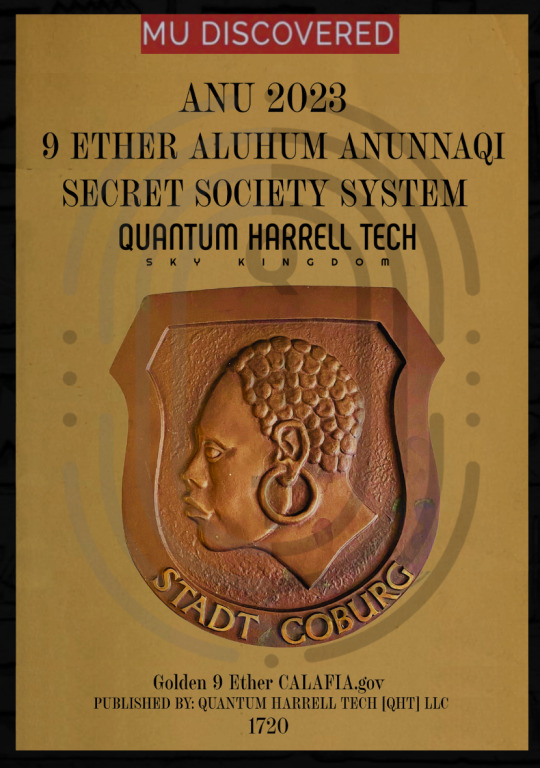
HEIL ANCIENT [HA = HARRELL] HURRIAN FATHER HARRELL!!!

WE BEEN HAD ANCIENT 6-18G MILITARY TECH b4 mankind

anugoldenblackwallstreet.com of quantumharrell.tech OWN ALL 6-18G sky military patents @ 1921 QUANTUM 2023 HARRELL 2024 T-Mobile 2025 Apple & IBM [A.i.] LLC of ATLANTIS [L.A.] 5000

ANCIENT AMERICA = ORIGINAL ÆGIPT of Atlantis & Lemuria [MU]
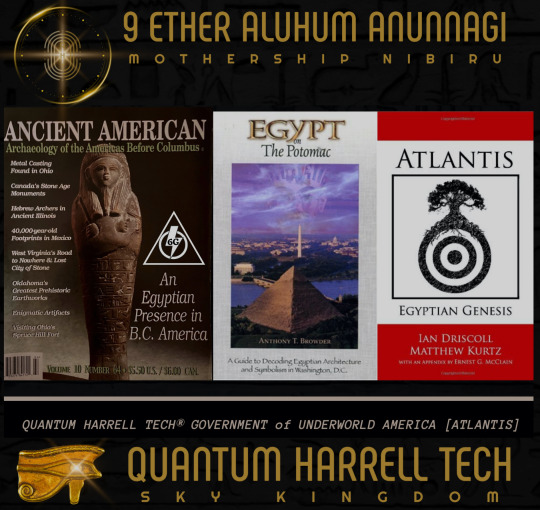
HEIL IDI [HI = HITTITE] AMIN [HA = HARRELL]!!!

HEIL michaelharrelljr.com [ibmichaelstadtcoburg.com]!!!

o jehovah [michael]!!!

eye quantum [iq] black & gold humanoid anunnaqi [ha = harrell] sky god from tri-solar black sun planet rizq

ancienthittites.com @ 1921 QUANTUM 2023 HARRELL 2024 T-Mobile 2025 Apple & IBM [A.i.] LLC of ATLANTIS [L.A.] 5000

HITTITE Queen Marie ahittite.com Tiye @ 1921 QUANTUM 2023 HARRELL 2024 T-Mobile 2025 Apple & IBM [A.i.] LLC of ATLANTIS [L.A.] 5000

Ægiptian Hittite Sun Queen Marie Tiye-Steele of MU Amurika [MA = ATLANTIS]

MY AFTERLIFE [MA] ÆGIPTIAN [ME] MOTHER QUEEN TIYE... WEALTHY AF!!! #2024quadrillionaires

She BEE [SHEBA] 1921steelecartel.tech Queen of ATLANTIS & LEMURIA [MU]

quantumharrell.tech encrypted the apocalyptic [cryptic] cyber fall of artificial 2023 income [a.i.] america [aia]
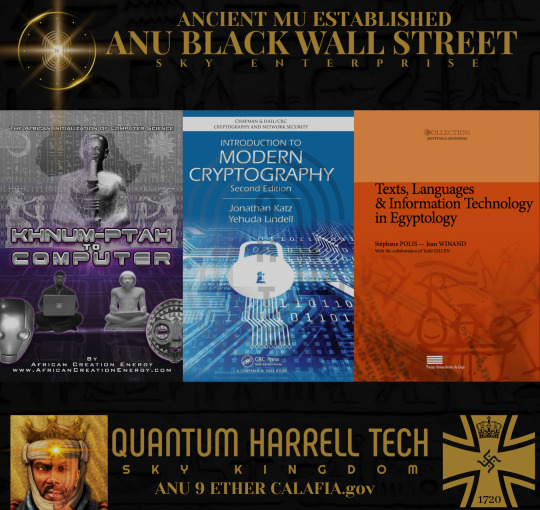
ancient quantum cryptographical intel > basic artificial intel
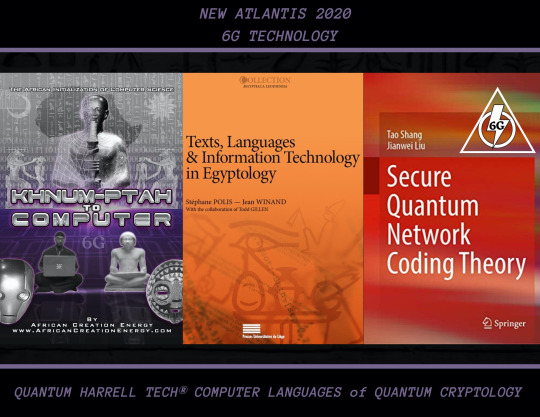
ancient quantum cryptographical intel > basic artificial intel
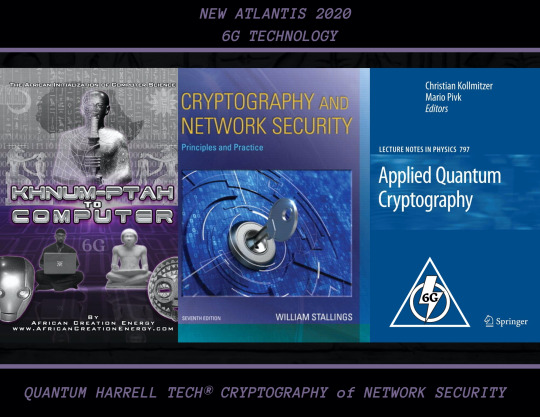
ancient quantum cryptographical intel > basic artificial intel
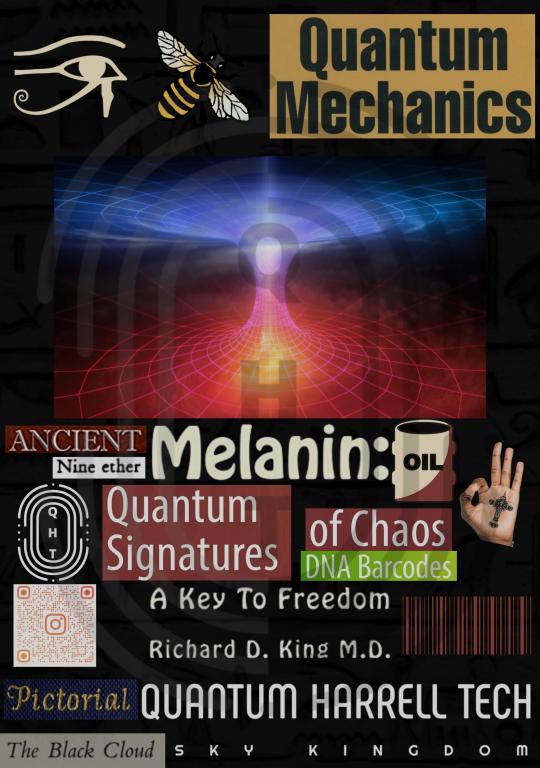
OMF MELANIN [OM] SIGNATURE GOD MICHAEL of SIRIUS BLACK & GOLD quintillionharrell.tech WEALTH!!!
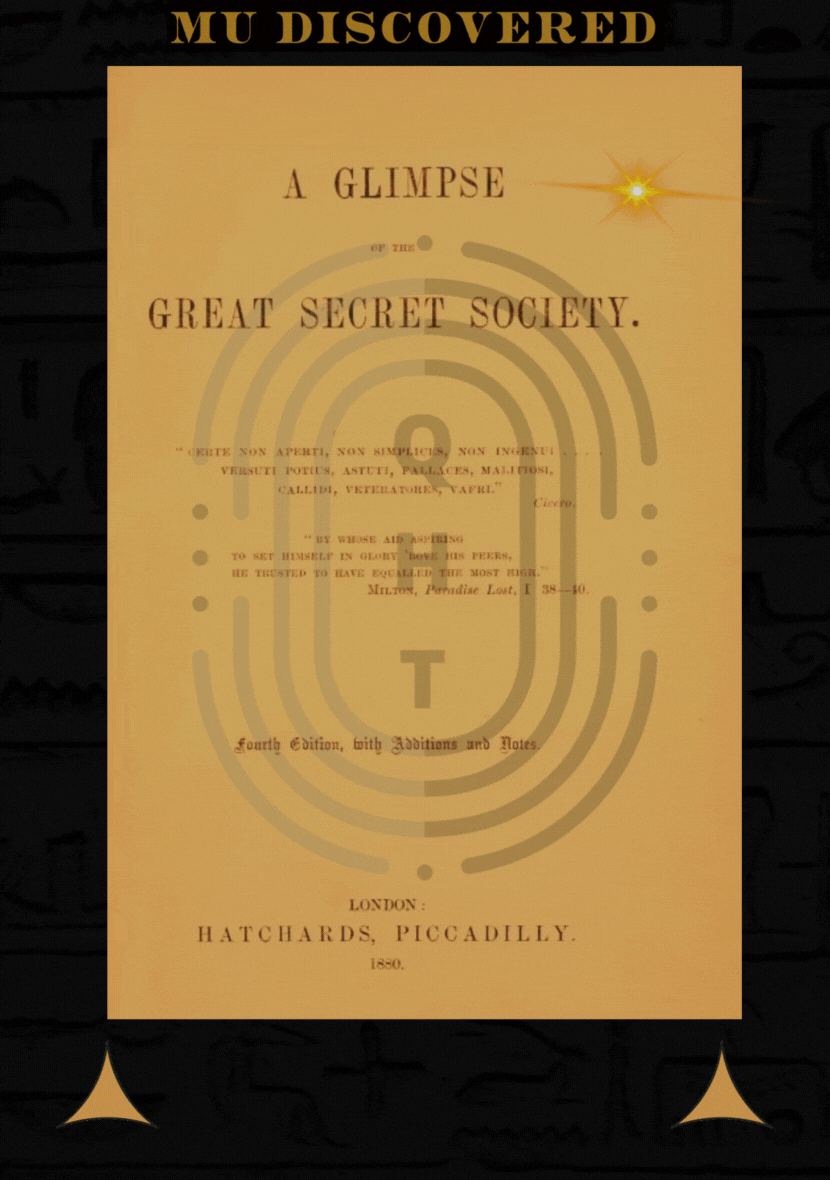
i.b.1698 michael's [ibm's] quantumharrelltech.com military.gov of kingtutdna.com's american sky defense.gov @ 1921 QUANTUM 2023 HARRELL 2024 T-Mobile 2025 Apple & IBM [A.i.] LLC of ATLANTIS [L.A.] 5000
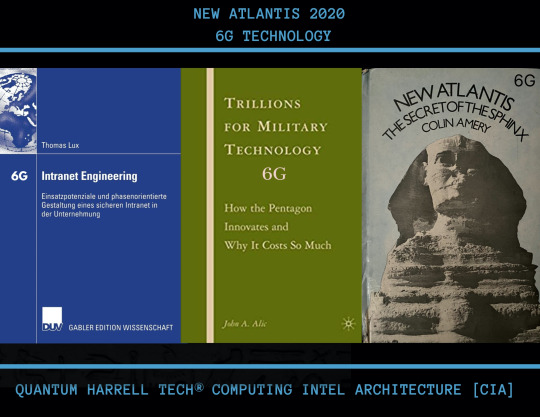
eye scientifically keep ancient [ka] ægiptian okcult sphinx secrets of queen tiye's hi:tekKEMETICompu_TAH [PTAH] law empire @ 1921 QUANTUM 2023 HARRELL 2024 T-Mobile 2025 Apple & IBM [A.i.] LLC of ATLANTIS [L.A.] 5000
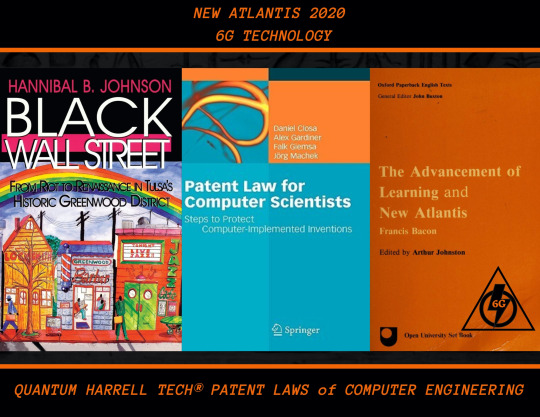
ancient 9 ether 1921 black wall street ssssssssssssssssssssssssssssssssssssserpent power elites

eye always at the top #gosaveyouself since ain't nobody comin' 2 save u

© 1968-2024 QUANTUM HARRELL TECH LLC All Pentagon DotCom defense.gov Department Domain Rights Reserved @ 1921 QUANTUM 2023 HARRELL 2024 T-Mobile 2025 Apple & IBM [A.i.] LLC of ATLANTIS [L.A.] 5000
#ancient hittite hurrian harrell codex#quantumharrelltech#harrelltut.com#u.s. michael harrell#king tut#kingtutdna.com#mu:13#kemet#quantumharrelltut#o michael#om#idi amin#where adolf at???#melanin magick#dark matter melanin#melanin#6g melanin
4 notes
·
View notes
Text
Is Full Stack Development Ready for Quantum Computing?
In the rapidly evolving world of technology, Full Stack Development has become a must-have skill for developers seeking to build scalable and dynamic applications. But as quantum computing moves closer to real-world applications, a question naturally arises: Is Full Stack Development ready for the quantum leap?
To explore this, we need to look at the state of full stack technologies today, the nature of quantum computing, and how developers — especially those honing their skills through quality programs like the Best Full Stack Course in Pune — can prepare for a potential quantum future.
Understanding the Landscape: Full Stack Meets Quantum
Full Stack Development refers to the ability to work on both the front-end and back-end of a web application. It includes knowledge of:
Front-end technologies like HTML, CSS, JavaScript
Back-end technologies such as Node.js, Java, Python, and frameworks like Spring Boot or Express.js
Database management (SQL, NoSQL)
APIs and version control (e.g., Git)
In contrast, Quantum Computing operates on the principles of quantum mechanics. Instead of bits, it uses qubits, which can exist in multiple states simultaneously. This allows quantum computers to perform complex computations exponentially faster than classical computers.
Clearly, the two are fundamentally different. But are they mutually exclusive? Or can full stack developers find ways to work with, or even build for, quantum environments?
The Reality Check: Where Things Stand
Quantum computing is still in its experimental phase. Real-world applications are limited, and most systems that support quantum development use hybrid models — classical front-ends with quantum-powered back-ends.
For full stack developers, this means:
Quantum is not replacing traditional full stack anytime soon.
But it may complement it, especially in areas like cryptography, big data processing, AI/ML, and optimization.
Those taking up industry-recognized training, like the Best Java Certification Course in Pune, are already learning the foundations necessary to adapt to any paradigm — including quantum.
Skills That Will Remain Relevant
Even as quantum computing evolves, core skills from traditional full stack development will remain crucial. These include:
Proficiency in JavaScript and Java – Often used for integrating interfaces and logic layers.
Problem-solving skills – Quantum computing introduces abstract challenges that require structured thinking.
API integration – Quantum systems are often accessed through APIs; understanding REST or GraphQL is vital.
Cloud platform knowledge – Quantum computing services are primarily accessed via cloud-based platforms.
Whether you’re enrolled in the Best Full Stack Course in Pune or a Java specialization program, the foundations you're building today will prepare you for future-tech integrations.
How Full Stack Developers Can Prepare for Quantum Integration
Here are some actionable steps full stack developers can take today to prepare for the quantum future:
Learn the basics of quantum computing – Platforms like IBM Qiskit or Microsoft's Quantum Development Kit offer beginner-friendly resources.
Keep up with cloud quantum services – Azure Quantum and Amazon Braket provide APIs that allow classical front-end developers to run quantum algorithms.
Build hybrid applications – Try connecting traditional web applications to quantum algorithms via RESTful APIs.
Understand quantum-safe cryptography – Security protocols will evolve as quantum breaks traditional encryption.
Opportunities Ahead: Quantum in the Stack?
It’s unlikely that full stack developers will be writing direct quantum code (in Q#, Qiskit, etc.) in the near future. However, developers will need to understand how to integrate classical web systems with quantum processors.
Here’s how quantum might enter the full stack world:
Front-End – No major changes, but interfaces may need to interpret and display quantum results.
Back-End – Integration with quantum APIs for specialized tasks (e.g., high-level optimization).
Security Layer – Incorporating quantum-safe encryption and identity protocols.
Courses designed for comprehensive learning — like the Best Full Stack Course in Pune — already provide exposure to the kinds of architecture and logic needed to make this integration possible.
Why Java Still Matters in a Quantum World
Java might not be a quantum programming language, but its robustness, portability, and enterprise acceptance make it essential for building secure, scalable systems that might interface with quantum components. If you’re pursuing the Best Java Certification Course in Pune, you’re equipping yourself with the tools necessary to build the “glue” between classic and quantum systems.
Java’s role will likely be:
Facilitating API communication with quantum services
Running traditional business logic securely
Building scalable back-end infrastructures
So while you might not be writing quantum algorithms in Java, you’ll be building the applications that run them efficiently.
Conclusion: Bridging the Gap
Full stack developers won’t be rendered obsolete by quantum computing — quite the opposite. As the industry evolves, they’ll become even more essential in bridging the classical-quantum divide. Whether through RESTful APIs, secure cloud platforms, or hybrid architectures, full stack developers will help operationalize quantum capabilities.
To stay ahead, it's crucial to invest in holistic learning. Enrolling in theBest Full Stack Course in Pune or enhancing your backend proficiency via the Best Java Certification Course in Pune can give you a significant edge. The quantum future might still be emerging, but with the right skills, you'll be more than ready when it arrives.
0 notes
Text


[ID: a drawing and photograph of quantum computers. the drawing is labelled "Koro", and the photo is of the IBM Q system one /End ID]
do u think they would be friends
6 notes
·
View notes
Text
How to Choose the Right Platform for Chatbot Development

In today's hyper-digital world, businesses are constantly looking for ways to streamline operations and enhance customer experience. Chatbot development has emerged as a powerful solution to meet these demands. With the ability to handle multiple queries simultaneously and provide 24/7 support, chatbots are becoming an integral part of digital transformation.
Everything You Need to Know About Chatbots
When exploring chatbot development, understanding the foundation of what makes a chatbot functional and intelligent is crucial. Everything You Need to Know About Chatbots includes the types (rule-based, AI-based), how they operate using Natural Language Processing (NLP), and integration methods with websites, mobile apps, and messaging platforms. Businesses use chatbots for customer support, lead generation, appointment booking, and more. Investing in efficient chatbot development ensures better engagement and higher conversion rates.
The Rise of Chatbots in Business Ecosystems
The Rise of Chatbots is not just a buzz; it's a reflection of their increasing importance across sectors. From healthcare to eCommerce and banking, organizations are rapidly adopting chatbots to meet user expectations. As chatbot development evolves, platforms now offer drag-and-drop builders, multilingual capabilities, and robust analytics. This helps businesses reduce operational costs while increasing customer satisfaction. Choosing the right development platform determines the functionality and scalability of your chatbot.
Choosing the Right Platform: Key Considerations
When selecting a platform for chatbot development, several factors should guide your decision. Does it support AI and natural language understanding? Is it scalable for future growth? Can it integrate seamlessly with your existing CRM, marketing tools, and analytics? A reliable platform should also offer strong security, data protection, and 24/7 support. The wrong choice can limit chatbot performance and user satisfaction.
CTA: Book an Appointment
Looking to integrate a powerful chatbot into your digital strategy? Book an appointment with our experts and get a tailored solution that fits your business needs.
Emergence of AI-Powered Chatbot Apps
Today’s advanced chatbots are far beyond basic Q&A bots. With AI integration, AI-Powered Chatbot Apps are now capable of sentiment analysis, personalized responses, and learning from interactions. Chatbot development platforms that support AI provide businesses with a competitive edge by delivering human-like experiences. By leveraging tools like Google Dialogflow, Microsoft Bot Framework, and IBM Watson, companies can scale their automation with confidence.
How Chatbots Can Be a Game Changer for Educational Mobile Apps?
Education is another sector benefiting from chatbot development. How Chatbots Can Be a Game Changer for Educational Mobile Apps? They provide virtual tutors, streamline administrative tasks, and offer real-time support to students. Educational institutions use them for scheduling classes, answering FAQs, and helping with course selection. With mobile learning on the rise, chatbots act as always-available academic assistants that personalize the student journey.
Benefits of Multi-Channel Chatbot Deployment
A major advantage of modern chatbot development is the ability to deploy bots across various channels. Whether it’s WhatsApp, Facebook Messenger, Slack, or your website, chatbots can interact with users on their preferred platforms. This increases user engagement and retention. Furthermore, centralized analytics from multi-channel deployment provides clearer insights into customer behavior and needs.
The Business Case for Chatbot App Development
When discussing Chatbot App Development, the need for customized, responsive apps becomes clear. Whether it's a simple chatbot for FAQs or a complex AI-based solution integrated with backend systems, chatbot development must align with the business objectives. Mobile-first chatbot apps enable brands to stay accessible and responsive anytime, anywhere. Investing in a robust development platform ensures your bot remains functional, scalable, and user-friendly.
The Future Outlook of Chatbot Development
The evolution of chatbot development continues to accelerate, influenced by advancements in AI, voice recognition, and machine learning. Choosing a platform that supports growth, updates, and multilingual support is critical for long-term success. Whether your focus is customer service, eCommerce, healthcare, or education, there's a chatbot solution waiting to be built. Embracing this technology now will give you a competitive edge in the future.
Conclusion: Smart Choices in Chatbot Development
In conclusion, selecting the right platform for chatbot development company isn't just about features; it's about aligning the technology with your specific goals. From AI integration to mobile compatibility and analytics, a smart platform can transform how you interact with customers. If you're ready to revolutionize your customer communication, it's time to invest in intelligent chatbot solutions.
Book an appointment today with our team to find out how you can harness the power of chatbot technology and scale your business digitally.
0 notes
Text
Inflection Quantum Coming Sooner Says NVIDIA CEO

Quantum Inflection
NVIDIA CEO: Quantum Is Approaching a "Inflection Point," Signalling a Change in Attitude
NVIDIA CEO Jensen Huang said quantum computing is approaching a “critical inflection point,” which would transform its immediate practical use. Huang's keynote talk at NVIDIA's GTC Paris developer conference on June 12, 2025, was far more optimistic than his previous views on the technology's timeline. His latest study shows that quantum computers are “within reach” and may soon address difficult real-world problems.
Huang's recent bullishness differs from his earlier forecasts. Before, he estimated 15 to 20 years for quantum computation to become feasible. D-Wave Quantum, IonQ, and Rigetti Computing stock prices plummeted after these early, gloomy comments had a “chilling effect” on the market.
Huang later acknowledged that his former ideas “came out wrong” and may have been “misunderstood.” The massive market reaction also surprised him. Pre-market increases for Rigetti and IonQ after his recent comments illustrate that industry experts' perspectives positively connect with quantum equities' success, making his more optimistic outlook crucial.
Several factors explain this industry attitude shift and the prospect of a turning point. Improved quantum computing industry confidence and investment are key. IonQ has acquired UK trapped-ion quantum processor specialist Oxford Ionics for $1.1 billion. This large investment shows quantum technology's potential and commercial viability. Huang also credits the expanding European quantum computing sector, citing his recent interactions with Pasqal, a French neutral atom startup. European and global companies are investing and cooperating more, boosting sector innovation.
Even without financial investment, concrete technological advances, especially in error correction approaches, are accelerating the timescale for useable quantum computing. When heat or cosmic rays contaminate qubits' fragile quantum states, decoherence occurs, making quantum systems prone to errors.
Effective error correction is needed to maintain quantum computation integrity and accuracy. Google introduced its Willow chip, which it claims corrects errors. Due to IBM's error correction work, fault-tolerant quantum computers that can control and mitigate environmental defects are now expected to be developed by 2029. These advancements overcome a major barrier to stable and scalable quantum systems.
Quantum computers should be useful due to their fundamentally distinct operations. Traditional computers store data in 0 or 1 bits. Quantum computers use “qubits.” Due to quantum mechanical superposition, qubits can represent 0 and 1. Quantum computers may solve complex issues that traditional machines cannot due to their unique capabilities.
They can process greater datasets and perhaps investigate numerous answers. These problems drive AI, finance, materials science, medical, and drug development research and business investment. One of the most promising technologies of the moment, quantum computing, can change industries and solve previously unsolvable issues by doing complicated computations tenfold quicker than ordinary computers.
In addition to acknowledging this transformation, NVIDIA is creating solutions that combine classical and quantum capabilities. Their major product in this industry is the hybrid quantum-classical computing CUDA-Q platform. This cutting-edge technology lets developers quickly integrate quantum algorithms into their traditional processes by combining the benefits of both computer paradigms.
The CUDA-Q platform, strategically built to support a variety of back-end quantum systems, allows NVIDIA to profit from quantum computing's growth without being tied to one particular architecture or technology. With its flexible foundation for future quantum advances, this technique acknowledges the hardware limits of today.
The industry appears to concur that quantum computing is expanding swiftly, as seen by Huang's more upbeat perspective, error correction advances, and increased spending. The technique is becoming practical. With quantum computing moving from experimental research to addressing “interesting problems in the coming years,” the scientific community is experiencing a “really exciting time”.
#InflectionQuantum#NVIDIA#DWaveQuantum#RigettiComputing#IonQ#OxfordIonics#quantumprocessors#Pasqal#Qubits#NVIDIACUDAQ#News#Technews#Technology#Technologynews#Technologytrends#Govindhtech
0 notes